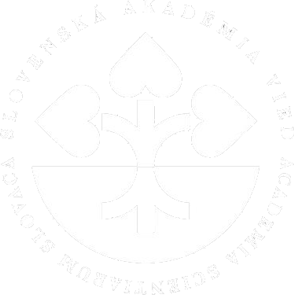Department of Human genetics
Research Topic
The Department of Human Genetics has more than 30 years of history, when a common workplace of the Slovak Academy of Sciences and the Faculty of Natural Sciences of the Comenius University was formed. From a historical point of view, it was founded by experts who were among the pioneers in the analysis of human DNA, then focused mainly on selected narrow areas of the human genome. Since that time, the knowledge and technological possibilities in this field are constantly and rapidly growing. Our department, therefore, focuses on keeping up with technological and knowledge leaps, constantly monitoring and adapting new methodologies, applying them in our own research, and subsequently facilitating their transfer from a “research world” ” into everyday diagnostic clinical practice. In the context of the possibilities of “reading” of genetic material, we have moved from analysis of individual genomic positions to the ability to sequence entire human genomes and transcriptomes. Our goal is to reach this level also in the context of “understanding” the information encoded in our individual genomes. And then, to bring these technologies and knowledge to the people who should benefit the most from it.
The main research topics of the department are as follows:
1) Monogenic disorders.
In this field we are working on the introduction, standardization and validation of genetic and genomic tests enabling the diagnosis of monogenic disorders. In addition, we also try to reveal and characterize the effect of modifying genes and their sequence variants, which influence the severity of the studied diseases or their therapeutic possibilities. We also focus on the analysis and molecular characterization of the mutational spectrum of these diseases in the population of Slovakia. As part, we strive for the detailed functional characterization of sequence variants whose potential clinical impact is yet unknown. As typical examples of the diseases studied by us we can mention metabolic diseases (such as alkaptonuria or phenylketonuria), neuromuscular diseases (such as various muscular dystrophies and myotonic disorders), neurological diseases (such as polyneuropathies and epilepsy), immune system disorders, and also various extremely rare congenital developmental disorders and syndromes.
2) Complex diseases.
Our main effort is to implement modern approaches for calculations of polygenic risk scores (PRS) from whole genome sequencing data. As a model, we study the genomic background of complex multifactorial and civilizational diseases, such as autoimmune inflammatory bowel diseases, psoriasis, eczema, etc.
3) Standardization, implementation and development of modern genomic approaches based on microarray applications and on massively parallel sequencing.
Our effort is to contribute to more reliable, accurate and widespread possibilities of implementation of genomic technologies, aimed at the analysis of whole exomes, whole genomes, as well as transcriptomes and methylomes. As part of this activity we are working on the characterization of challenges of their effective and reliable implementation, and we are contributing to the development of new bioinformatic tools and approaches for data analysis (e.g. for genotyping of problematic microsatellite motifs or for easier application of PRS calculations). To make translational efforts more effective, we are also contributing to the creation of methodological guidelines and standards for the implementation of these techniques into routine clinical practice.
Research Team
RNDr. Ján Radvánszky, PhD.
Head of Department (temporarily entrusted with the management of the department)
SCIENTIFIC STAFF:
Mgr. Andrea Zaťková, PhD,
Mgr. Andrea Šoltýsová, PhD.
RNDr. Zuzana Pös, PhD.
RNDr. Eva Tóthová Tarová, PhD.
SCIENTIFIC AND TECHNICAL STAFF:
Mgr. Natália Forgáčová
PhD STUDENTS:
Mgr. Veronika Medová
Mgr. Ingrid Lojová
- APVV-18-0319: Development and testing of molecular and informatic tools for effective characterisation and interpretation of clinically relevant microsatellite repetitive motifs from genomic data(2019-2023). Coordinator for the BMC SAV: RNDr. Ján Radvánszky, PhD.
- VEGA-2/0040/20: Study of the genetic background of variable severity of Alkaptonuria using genomic approach (2020-2022). Project leader: Mgr. Andrea Zaťková, PhD.
- VEGA_2/0167/20: Study of alternative ways of genome-wide polygenic risk score calculations for the estimation of individual genetic predispositions to complex multifactorial diseases (2020-2022). Project leader: RNDr. Ján Radvánszky, PhD.
- Gažiová M, Sládeček T, Pös O, Števko M, Krampl W, Pös Z, Hekel R, Hlavačka M, Kucharík M, Radvánszky J, Budiš J, Szemes T (2022): Automated prediction of the clinical impact of structural copy number variations. Sci Rep. 12(1):555. doi: 10.1038/s41598-021-04505-z. (IF.2020: 4.380 – Q1) (0 citácií)
- Hekel R, Budis J, Kucharik M, Radvanszky J, Pös Z, Szemes T. (2021): Privacy-preserving storage of sequenced genomic data. BMC Genomics. 22(1):712. (IF.2020: 3.969 – Q2)
- Forgacova N, Gazdarica J, Budis J, Radvanszky J, Szemes T. (2021): Repurposing non-invasive prenatal testing data: Population study of single nucleotide variants associated with colorectal cancer and Lynch syndrome. Oncol Lett. 22(5):779. (IF.2020: 2.967 – Q4)
- Radvanszky J*, Hyblova M, Radvanska E, Spalek P, Valachova A, Magyarova G, Bognar C, Polak E, Szemes T, Kadasi L. (2021): Characterisation of Non-Pathogenic Premutation-Range Myotonic Dystrophy Type 2 Alleles. J Clin Med. 2021 Aug 31;10(17):3934. (IF.2020: 4.241 – Q1)
- Pecimonova M*, Radvanszky J, Smolak D, Budis J, Lichvar M, Kristinova D, Rozova I, Turna J, Szemes T. (2021): Admixed phenotype of NEDD4L associated periventricular nodular heterotopia: A case report. Medicine (Baltimore). 2021 Jun 4;100(22):e26136. (IF.2020: 1.889 – Q2)
- Pös O, Radvanszky J*, Buglyó G, Pös Z, Rusnakova D, Nagy B, Szemes T (2021): DNA copy number variation: Main characteristics, evolutionary significance, and pathological aspects. Biomed J. 44(5):548-559. (IF.2020: 4.910 – Q2) (8 citácií)
- Pös O, Radvanszky J*, Styk J, Pös Z, Buglyó G, Kajsik M, Budis J, Nagy B, Szemes T (2021): Copy Number Variation: Methods and Clinical Applications. Appl. Sci. 2021, 11(2), 819; https://doi.org/10.3390/app11020819. (IF.2020: 2.679 – Q2/Q3)







